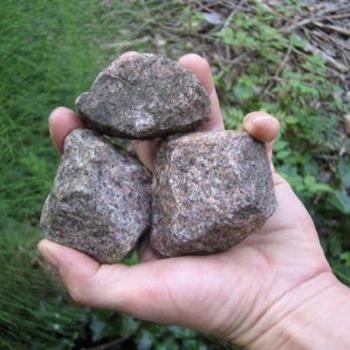The most powerful sermon on Purgatory I ever heard came from the pulpit of a Southern Baptist church.

Of course, Southern Baptists would vehemently deny this. “Purgatory” seems a made-up barrier Catholics teach to lessen our reliance on divine Love.
The young speaker took to the podium like Augustus Gloop to chocolate. Any hint of anxiety when speaking to the flock of over 100 believers was either nonexistent or ironed and starched away like his pleated pants and crisp collared shirt.
In a pleasant, friendly, and entirely confident voice, he told us that on getting into Heaven, we will step through a wall of fire; and though we carry suitcases of what we think we will need, after stepping through the fire, we will see that the suitcases in our hands have been consumed and are gone. Unburdened by what we think is necessary, we will then enter Paradise.
I’m sure my surrounding friends that night, used to my weird ecumenical self, only rolled their eyes when my arms prickled with goosebumps and I whispered emphatically from my seat, “Purgatory.”
As that Southern Baptist preacher seemed to understand (maybe in spite of himself), Purgatory is not a third alternative to Heaven or Hell, but the path to Heaven. Dante depicted this beautifully in his Divine Comedy, where he describes Inferno as a pit beneath the earth and Purgatorio as a mountain leading to Paradiso. Heaven is Space Mountain and Purgatory is the line to get there.
As Purgatory’s name implies, rather than just an inconvenient bottleneck, it is a method of getting purged before we enter the direct presence of God, the ultimate perfection. Catholics recognize that humanity is indelibly fallen from the magnanimous Eternal; we call that dirty part of our flesh Original Sin – the undeniable truth in the story of Adam and Eve is that man chooses to rebel against God. Part of us will always be attracted to what is selfish, will always eat the forbidden fruit.
Our Protestant family knows this and sometimes adheres to it more strongly than Catholics do. “Total depravity,” a teaching taught in many Calvinist branches of Christianity, sees that man apart from God is totally worthless and evil; whereas someone like me, who acknowledges that humanity is tainted but not totally evil, is seen as naive, more than likely daydreaming, and not to be taken seriously. A simplistic, oft-repeated, but ultimately false quote attributed to Martin Luther exaggerates some Protestants’ view on nothing good being capable of man: that a man’s soul after being forgiven by God is nothing more than a “snow-covered dung heap.”
To view divine forgiveness as a pristine blanket hiding us piles of shit seems awful. I can’t believe that God is a lazy housekeeper who sweeps fallen humanity under the rug so that we look nice, but our cleanliness ends at appearances. Is a shallow God worth believing in?
Even the word “forgiveness” seems to fall short. Christ is not known as our Forgiver, but our Redeemer…and redemption is intrinsic and profound, not artificial. This act is wholly (homonym! pun!) impossible without our divine Catalyst; to see redemption as being reliant on our own goodness is to say the glass of water turned red, yellow, or green of its own volition – regardless of the food coloring.

Atonement, a necessary part of the redemption process, involves being pruned like a bad olive tree. Atonement is more involved, more real than saying the correct incantation and inviting Jesus into our hearts.
Even after saying all of the right words, I fall far short of perfection. Even though I can be a pretty decent guy, a part of me does like Saint Paul writes,
“For the good that I want, I do not do, but I practice the very evil that I do not want.” Romans 7:19
Most of the book of Romans, in fact, speaks about the greatness of man’s sin and his general unworthiness. And though I don’t totally ascribe to the utter disappoint of mankind, like my total-depravity brothers and sisters, I recognize that part of me that I cannot quell seeks the most shameful option. Every damn time.
That realization is why Purgatory is less a Catholic construct preventing us from entering heaven, and more a source of hope. Jesus commands us to be perfect. Falling short of that, how can we enter a realm of perfection when we carry all of our baggage of sinful tendencies with us?
Thank God for the wall of fire. Thank God that the baggage we carry – our innate sinfulness – will be incinerated. Thank God that He brings us through it so that, before we enter Paradise, we may be perfect, as He is.
















